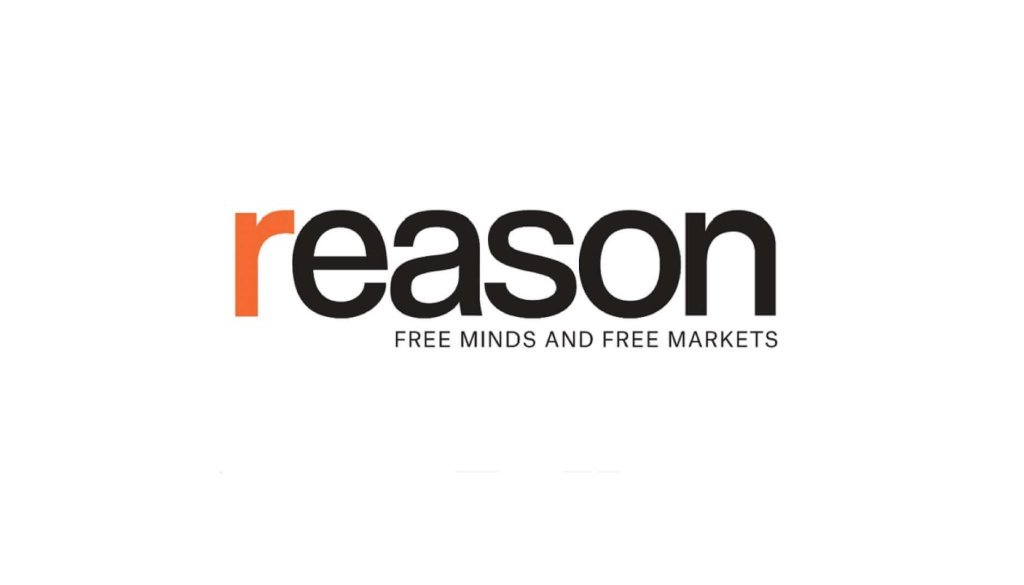How Trump’s Travel Crackdown Is Hurting Americans at Home and Abroad
This is part of Reason‘s 2025 summer travel issue. Click here to read the rest of the issue.
As the Trump administration began snatching college students, detaining legal European tourists, denying entry to British crust-punks, rejecting transgender passports, deporting tattooed Salvadorans, insulting the sovereignty of Canadians, and floating plans to ban visitors from 43 countries, the domestic travel and tourism industry braced itself for bad news.
“Historical data underscores that trade and geopolitical tensions influence travel demand,” warned the research firm Tourism Economics in late February. The group had previously estimated that inbound visits to the U.S. in 2025 would rise 8.8 percent over last year; now it was forecasting a 5.1 percent drop. What’s more, inbound travel spending this year “could fall by 12.3 [percent], amounting to a $22 billion annual loss.”
Sure enough, the year-over-year foreign visitor numbers in March were brutal. Down a jaw-dropping 18.4 percent, they were led by a sharp drop-off from America’s No. 1 supplier: Canada.
Then came President Donald Trump’s 11th week in office. On April 2, the populist president capped a lifelong enthusiasm for tariffs (“the most beautiful word in the dictionary,” he has said on multiple occasions) by announcing import taxes that averaged 22 percent, the largest ratchet in U.S. history.
The move came as a triple whammy to America’s globe-leading $200 billion travel and tourism industry. First, as the luxury travel agent Kate Sullivan told TravelPulse, “the cost of hard goods will increase for hotels, airlines, and other industry sectors, who will likely need to increase rates and fares to cover the increases.” Second, the disruptions to the global trading system will hit especially hard some of the fastest-growing sources of U.S. visitation—China, India, and Japan. And finally, the concomitant souring of overseas public opinion, particularly in regions (Scandinavia, Southeast Asia, North America) singled out for criticism by the Trump administration, is already depressing numbers. “The U.S. is not perceived as a welcoming destination,” travel agency owner Marco Jahn told the Associated Press after the tariffs were announced.
Americans whose incomes are not tethered to the enthusiasms of overseas visitors may have the impression that such industry turmoil will leave their own travel plans unscathed. Alas, they are mistaken.
For starters, domestic hoteliers are heavily reliant on imports for furniture, especially from high-tariffed China and Vietnam. Trump’s own hotels are filled with foreign-made dishware, chandeliers, and even American flags.
Making goods more expensive immediately reduces Americans’ discretionary spending, which is the bucket from which travel budgets are drawn. Recessions decrease vacations, sometimes sharply; after Trump’s tariffs, most of the major economic forecasting agencies (Moody’s, J.P. Morgan, Goldman Sachs, Morningstar) jacked up their expectations for an economic downturn. Consumer confidence also tracks closely with travel planning; the former
Article from Reason.com

The Reason Magazine website is a go-to destination for libertarians seeking cogent analysis, investigative reporting, and thought-provoking commentary. Championing the principles of individual freedom, limited government, and free markets, the site offers a diverse range of articles, videos, and podcasts that challenge conventional wisdom and advocate for libertarian solutions. Whether you’re interested in politics, culture, or technology, Reason provides a unique lens that prioritizes liberty and rational discourse. It’s an essential resource for those who value critical thinking and nuanced debate in the pursuit of a freer society.




![“any-lawyer-unaware-that-[generative-ai-research]-is-playing-with-fire-is-living-in-a-cloud” “any-lawyer-unaware-that-[generative-ai-research]-is-playing-with-fire-is-living-in-a-cloud”](https://libertarianguide.com/wp-content/uploads/385007-any-lawyer-unaware-that-generative-ai-research-is-playing-with-fire-is-living-in-a-cloud-1024x858-394x330.jpeg)